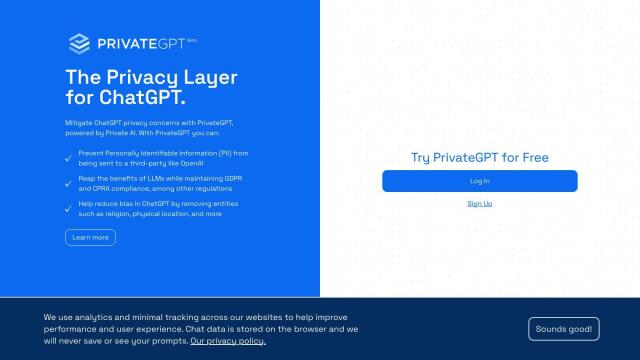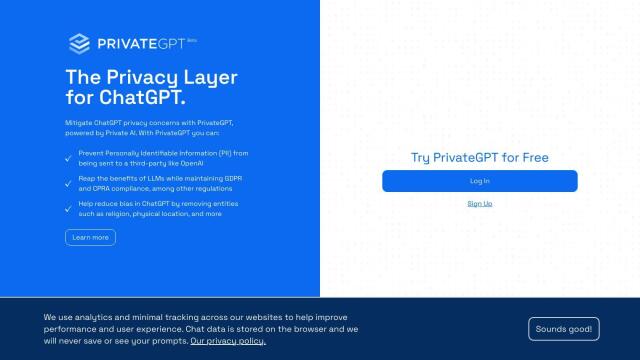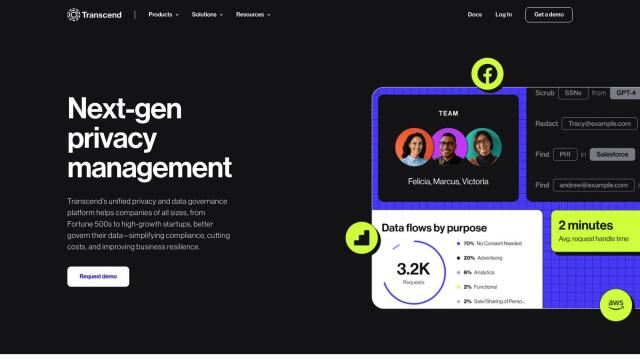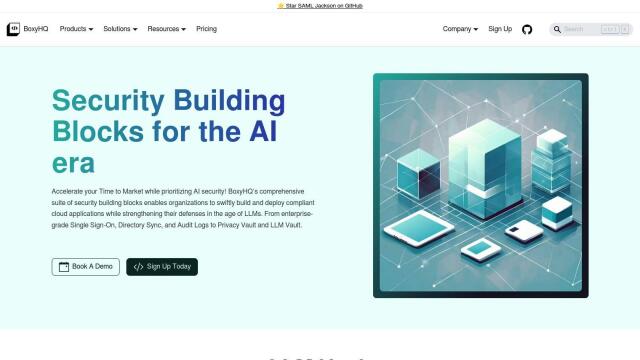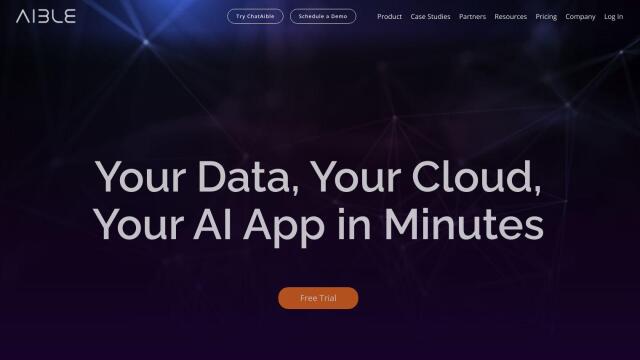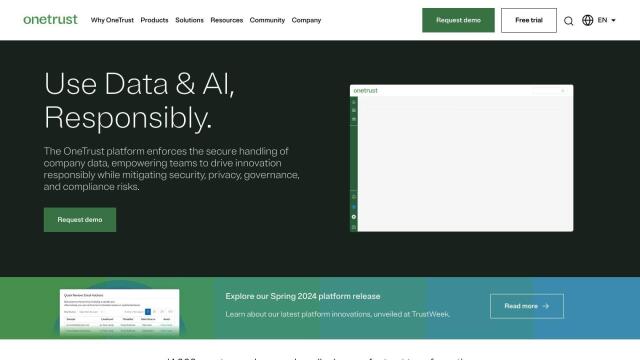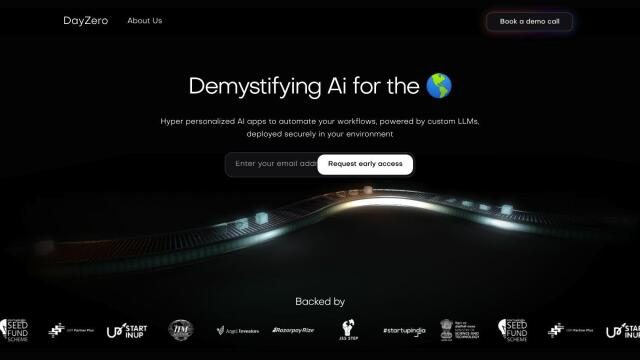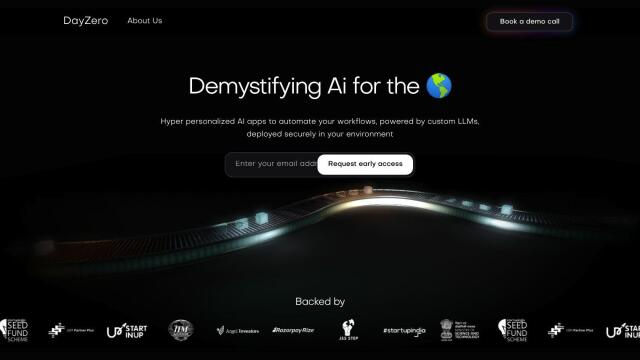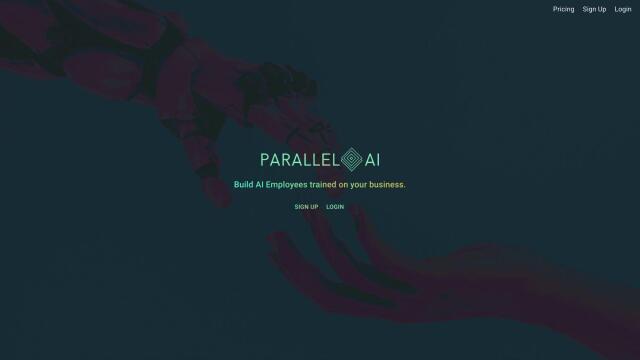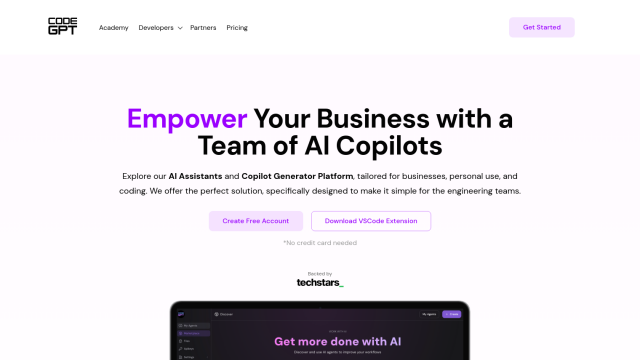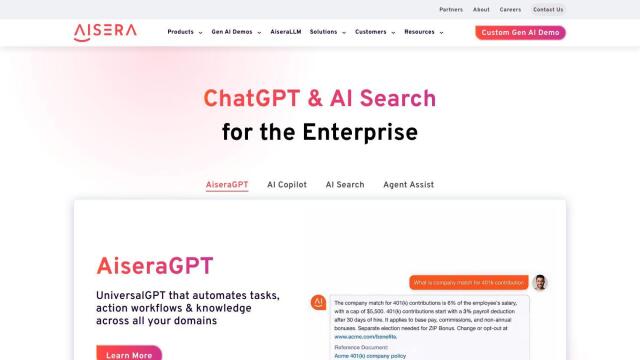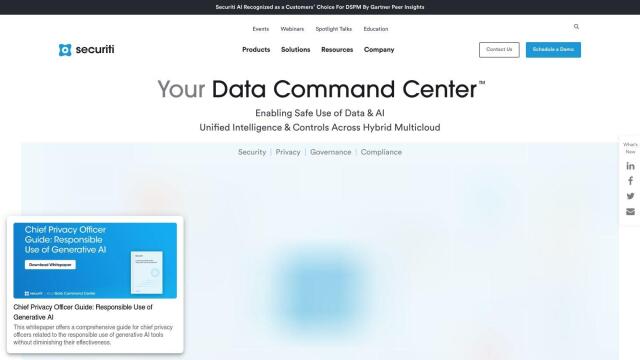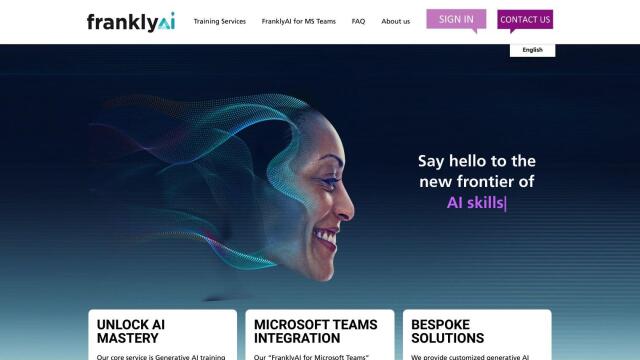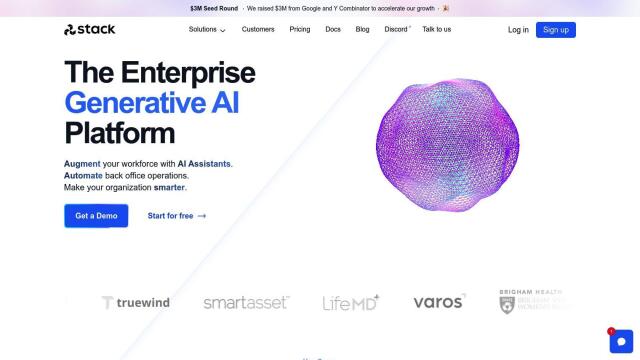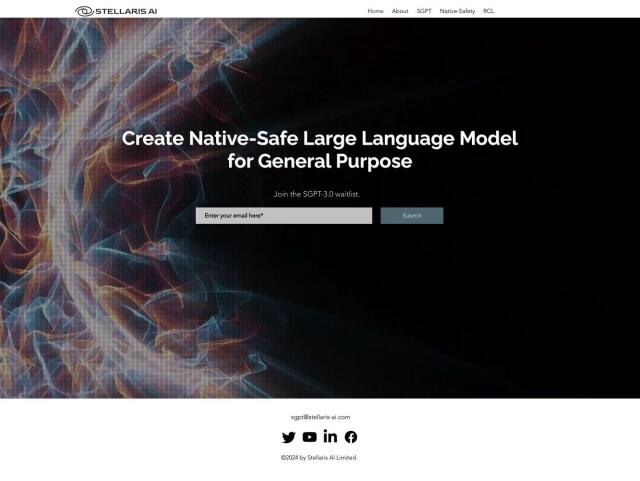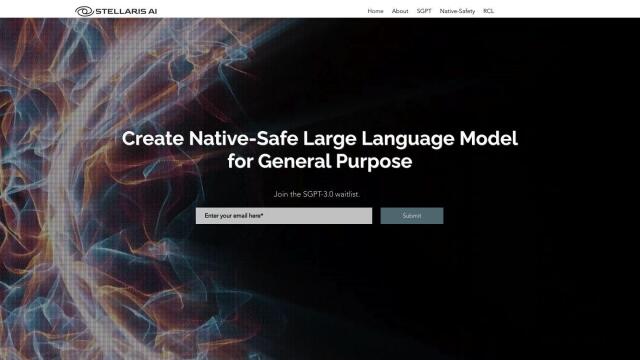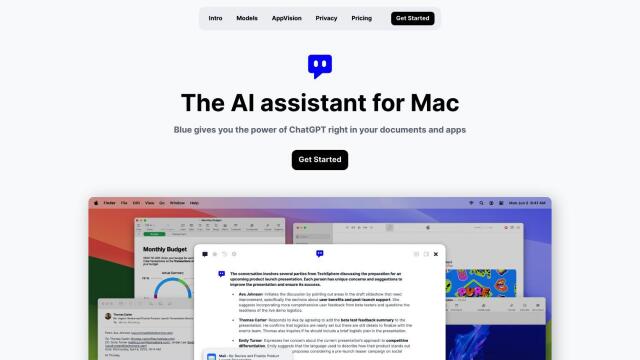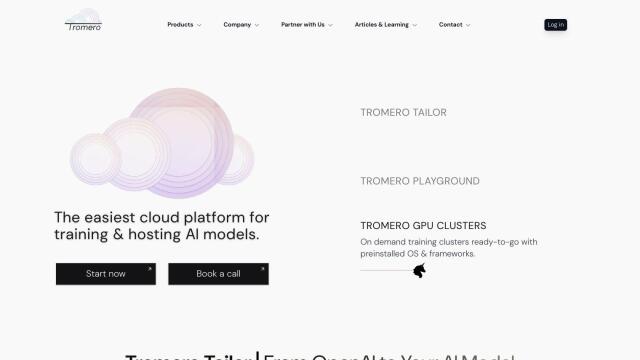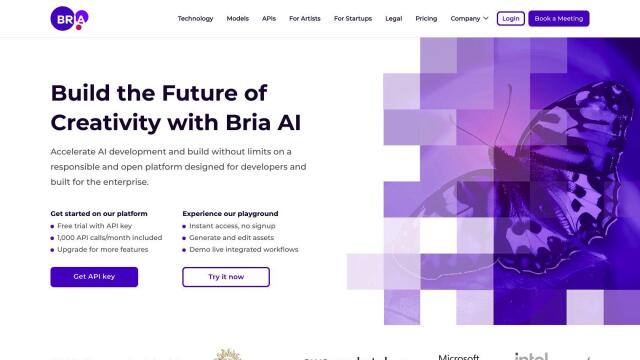
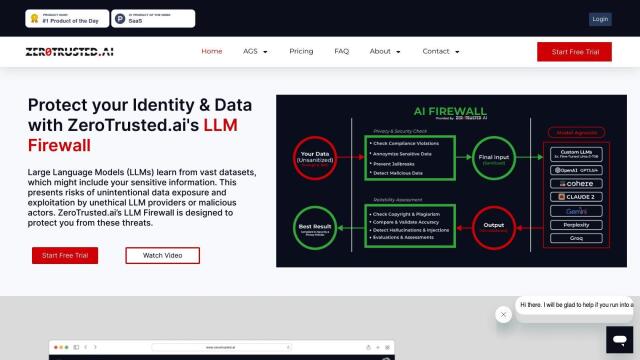
ZeroTrusted.ai
If you're looking for another PrivateGPT alternative, ZeroTrusted.ai is worth a look. This service is geared toward protecting data and privacy when using large language models, including Generative AI security. It includes an LLM Firewall that anonymizes prompts and validates suspicious input to help keep sensitive information private. It can be integrated with LangChain, Zapier and Azure Marketplace, so it should be useful for tech startups and companies that handle sensitive data.

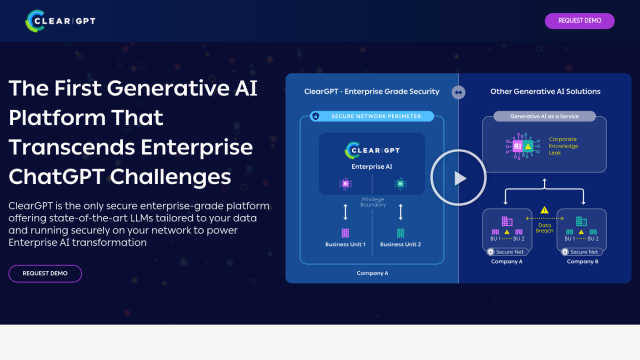
ClearGPT
Another good option is ClearGPT, an enterprise-focused service that's intended for internal use. It's got strong security, performance and data governance controls to prevent data leaks and give you maximum control. It's got features like role-based access controls, continuous data refresh and integration with existing applications, making ClearGPT a good option for companies that want to use AI without worrying about vendor lock-in.

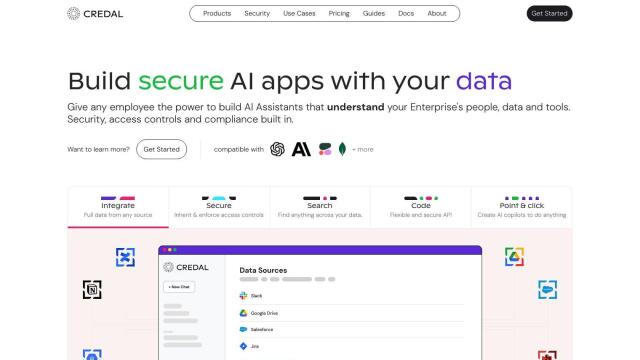
Credal
For building AI applications with security in mind, Credal offers a suite of tools for the job. It's got built-in security, access controls and support for standards like GDPR and HIPAA. Credal's Retrieval Augmented Generation technology lets you build enterprise-ready AI applications with data privacy and security built in.

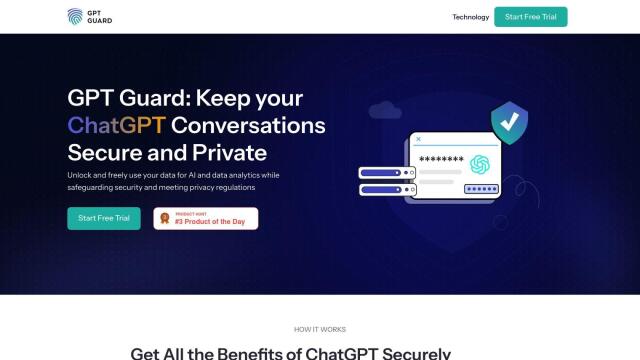
GPT Guard
Last, GPT Guard is a privacy-focused service for protecting sensitive information when using ChatGPT. It's got secure text generation, privacy-preserving analysis and secure research features. You can try it for free or pay for an enterprise plan, so GPT Guard is a good option for companies that need to follow privacy regulations but want to use AI.
